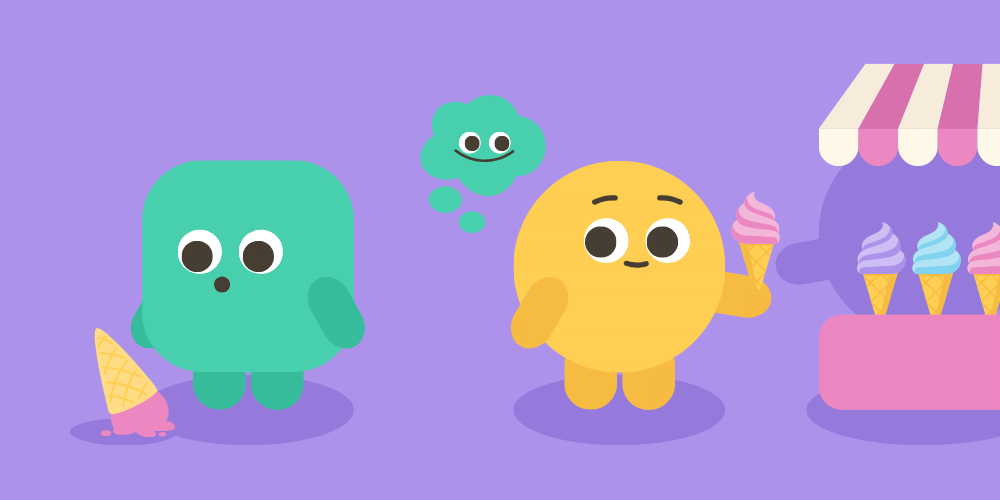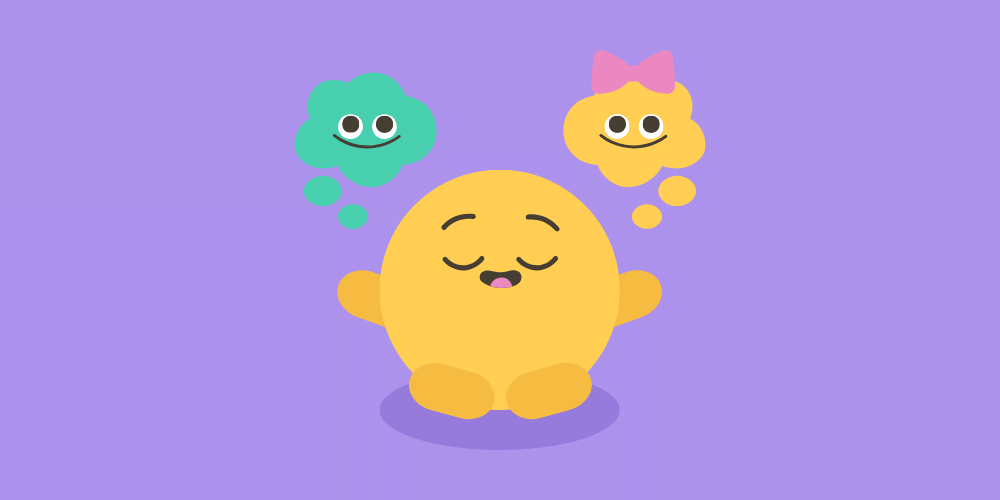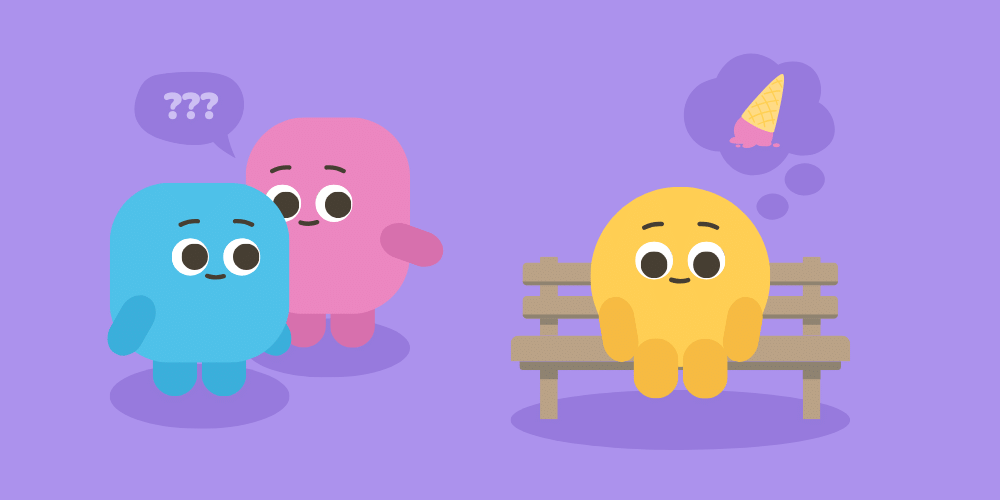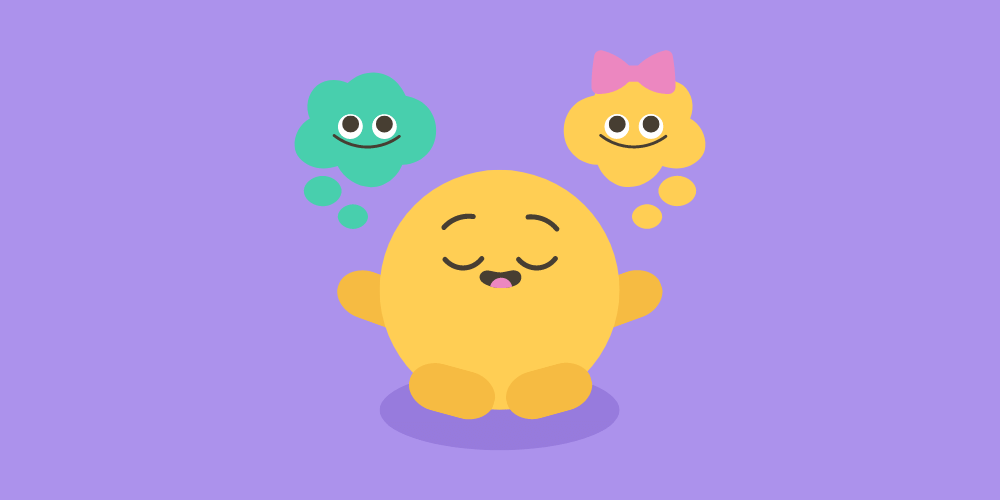
Kind people are the best kind of people. They are living examples of how universal friendliness can benefit both the giver and the receiver without expecting anything in return. Kind people restore a healthy perspective in our busy world and inspire others to follow in their footsteps. The courage they have to open their hearts creates a more compassionate world.
Why is the world not filled with kind people, then? Being kind is a challenge, especially in our competitive Western culture. Being kind toward strangers may evoke fears of weakness, if not naivety. We may fear that people will take advantage of us and, as the saying goes, "take our whole arm whenever we give them a hand." Indeed, we must set personal boundaries to care for ourselves. Nonetheless, most people will appreciate kindness and spread it further.
Kindness is not a sign of weakness but a mark of strength.
— Sharon Salzberg

This lesson builds upon several others in the chapter. By differentiating and accepting ourselves as we are, we build empathy. This empathy can manifest as generosity, which we call selfish generosity, to remind us that the giver also benefits. We have practiced kindness informally by doing random acts of kindness. However, there is also a formal practice to deepen these feelings, even when there is no immediate opportunity to express them externally—a loving-kindness meditation.
Loving-kindness meditation is a practice in which you wish yourself and others well.
In contrast to random acts of kindness, we will use our minds instead of our actions and words. Both practices can complement each other and contribute to creating a more compassionate and interconnected world.
Benefits
Loving-kindness practice has a remarkable impact on our well-being. Here are just some of the benefits:
- Improved emotional well-being
- Improved physical health
- Improved cognitive function
- Improved relationships
- Strengthened sense of purpose
- Reduced stress and anxiety
- Reduced self-criticism
Research also demonstrates that practicing loving-kindness meditation can change our brains. This kind of meditation increases activity in brain regions associated with empathy and prosocial behavior and shrinks the areas linked to stress and anxiety.
Action steps
The process of loving-kindness meditation shares some similarities with techniques you have already learned, such as Breath Focus and Mental Noting. However, instead of focusing on your breath or emotions, you will wish yourself and others well. Here are the instructions:
- Assume a posture that allows you to breathe easily. You can be sitting, walking, lying (as long as you are not sleepy), or standing while waiting for someone. Please do not perform this exercise while driving. Cultivate a well-disposed curiosity, and do not expect anything particular to happen.
- Allow your attention to settle on your breath. Where do you feel it? Do you feel the air as it enters or leaves your nostrils? Do you feel your belly rising and falling? If you do not feel anything, that is okay too. Do not try to control or judge your breath in any way; your breath will find its way.
- Wish yourself and others well. Start with yourself because we are often the least kind to ourselves. Then, expand the awareness to your family, friends, and everyone, including people to whom you feel negative emotions—this has the most transforming effect. It is crucial that you mean and feel what you say and that you imagine specific individuals. For example, you can say to yourself:
- "May I be happy, healthy, safe, and peaceful."
- "May my family be happy, healthy, safe, and peaceful."
- "May my friends be happy, healthy, safe, and peaceful."
- "May everyone be happy, healthy, safe, and peaceful."

Loving-kindness meditation takes time. Do not feel discouraged if your feelings do not reflect your words initially. Kindness is a choice that will transform into your feelings as you advance in your practice. When you learn to feel the benefits of kindness, you will never have to rely on your kindness being noticed and appreciated by others.
If you find expanding your kindness to strangers challenging, recall the emotional pasting (or copy-pasting) we discussed in the Reframing lesson. Imagine yourself, your family, and your friends. When you feel the emotion, swap that image with an image of strangers. Over time, they may not seem so strange after all.
I have never met anyone I consider a stranger.
— Dalai Lama
Practical tips
Here are practical tips (some of which you will remember from other meditations):
- There is no such thing as bad meditation.
- Judging the meditation misses its purpose.
- Do not think about meditation—meditate.
- Do not expect anything particular to happen.
- Keep a beginner's mind—every moment is new.
- Even two minutes a day can have a significant impact.
- The objective is to return to your focus, not to maintain it.
- Meditation is a practice of a thousand beginnings.
- Mean and feel your words and imagine specific people.
Kindness as a way of life
Showing kindness to people in the situations we have experienced firsthand may come naturally to us. For example, it is easier to understand the feelings of someone who lost a relative if we have experienced it too. While understanding makes it easier to be kind, it is not a condition. Holding back our kindness until we have accumulated enough experience, we could miss out on a lifetime of opportunities to express it.

Kindness does not require understanding the facts. No matter how hard we try to put ourselves in others' shoes, we may never objectively know what the other person is going through. The best we can do is to not judge and to embrace kindness as a way of life.
It is harder to be kind than clever.
— Jeff Bezos
Now or never
For the next two weeks, practice loving-kindness meditation for at least five minutes a day. Create a reminder.


